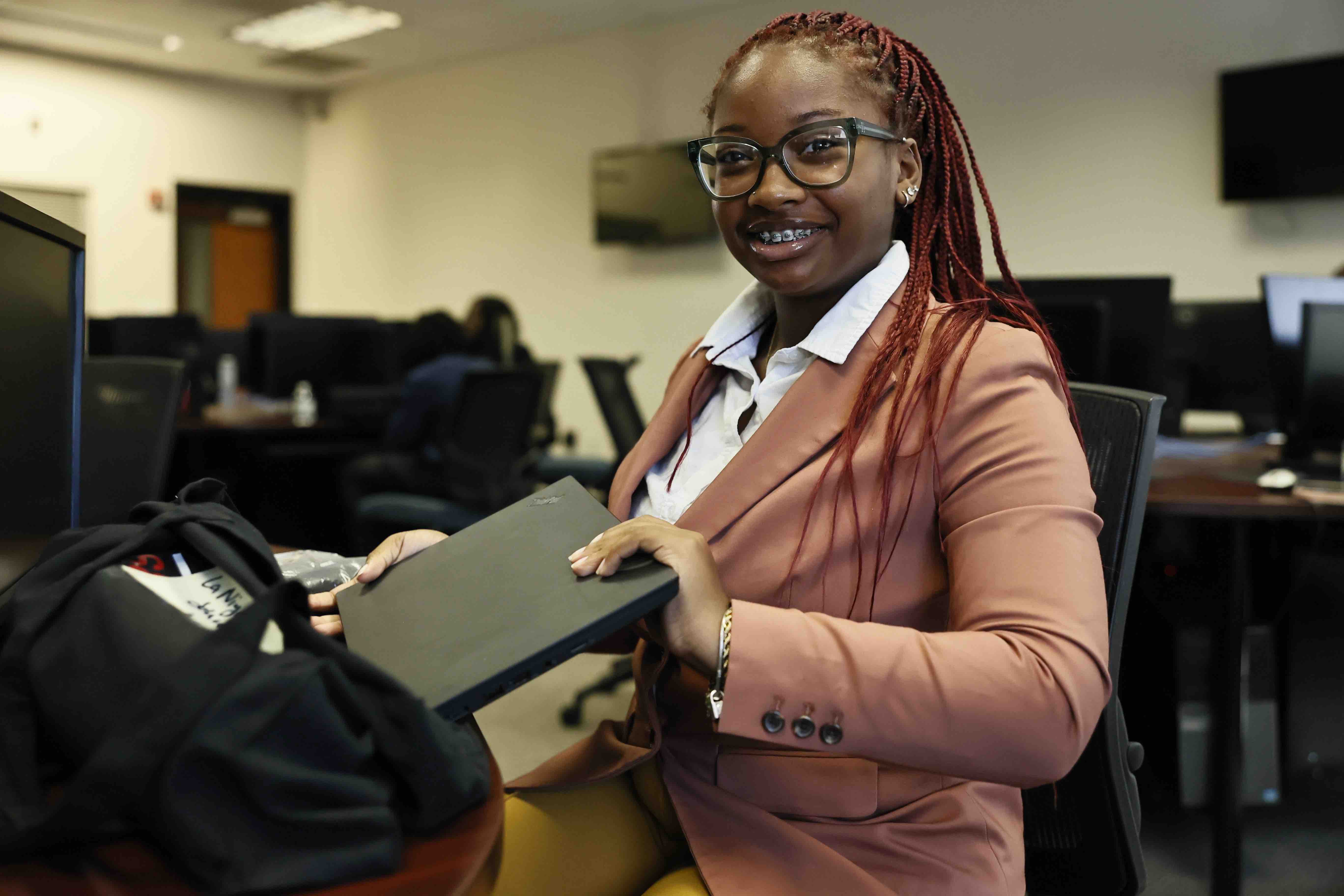The Department of Biology at Jackson State University is pleased to announce that Clement G. Yedjou, Assistant Professor of Biology and CSET Distance Learning Program Coordinator has received a Curricular Development Grant Award through the MS-INBRE funded by the National Institutes of Health to develop, build, design, and teach Advanced Principles of Environmental Science (BIO452-80) online using Blackboard and visual analytics technologies this fall.
 Through this award, Yedjou will also teach Environmental & Occupational Health (ENV720-80) online. The goal of this funded project is to provide career development opportunities to Science, Technology, Engineering, and Mathematics (STEM) students. To reach this goal, Yedjou has designed and implemented innovative curriculum resources into both online courses using blackboard to facilitate evidence-based instruction and discovery-based learning.
Through this award, Yedjou will also teach Environmental & Occupational Health (ENV720-80) online. The goal of this funded project is to provide career development opportunities to Science, Technology, Engineering, and Mathematics (STEM) students. To reach this goal, Yedjou has designed and implemented innovative curriculum resources into both online courses using blackboard to facilitate evidence-based instruction and discovery-based learning.
STEM Undergraduate majors are encouraged to enroll in BIO 452-80 (online) while STEM graduate students at the doctorate level are encouraged to enroll in ENV 720-80 (online). Because these are interdisciplinary courses, students from other disciplines across the State of Mississippi can enroll as well, especially those from the College of Public Service.
The goal of these two courses is to train STEM students in the field of environmental health sciences. Graduates will be able to recognize, evaluate and manage environmental factors that impact human health, and will have the knowledge and skills needed to meet a growing range of environmental health roles and responsibilities.
Yedjou will travel to Washington, D.C. on June 16 to present preliminary data from his project entitled: “Environmental Health and Technology-Enhanced Learning” at the NIH NIGMS 5th Biennial National IDeA Symposium of Biomedical Research Excellence (NISBRE). As an invited guest, he will have the opportunity to tour NIH facilities in Washington, D.C. on June 18, 2014, the last day of the symposium.
Why Online?
The online learning environment has several advantages as it allows students access to STEM education and offer them many free resources that are not available in face-to-face classroom settings. Other advantages include the following:
- Flexibility and Convenience: Online students don’t commute to a physical classroom. Instead, they work inside a course management system (Blackboard) to complete assignments and interact with instructors and classmates. There are due dates for course work, but students can log in to the course management system at their convenience.
- Excellent Instruction: Many online STEM courses are taught by highly qualified and accomplished instructors/professors based on their field of expertise. Therefore, online STEM courses offer students the chance to work with excellent instructors/professors from all over the United States.
- One-On-One Instruction: Online delivery method allows instructors to work one-on-one with students in a way that is generally impossible in the face-to-face classroom setting . Students who may be shy in the face-to-face classroom setting may have a chance to connect with other students in the online environment.
- Hands-on opportunities: Online courses offer lot of hands-on opportunities, skills, and experiences to STEM students since courses are connected with visual labs, animations, video analyses, study partner, and collaborative projects. These hands-on activities are important tools that improve student learning ability and inspire them to think critically especially in STEM fields and careers.
- High Levels of Interaction: An important component of online classroom learning is the social and communicative interactions between student and instructor and student and student. Online students usually communicate with the instructor and classmates through discussion boards, collaborative group assignments, email, phone, and live chat. Students often say the online environment allows them to learn as much from their classmates as they do from their instructors. Although online students don’t physically meet with the instructor and classmates, good online courses help students develop strong relationships with faculty and peers as those in the face-to-face environment. Discussion assignments and collaborative projects give online students the opportunities to engage with each other in a mutually supportive way.
Yedjou’s current teaching strategies involve interactive media, innovative group discussions, innovative technologies, and hands-on activities that help increase students’ learning and provide them with skills such as time management, self-discipline, independence, and they develop serious attitude towards learning. His previously taught online courses include: Introduction to Biological Sciences (BIO/BIOL101), General Biology (BIO111), Human Anatomy and Physiology (BIO/BIOL234, BIO/BIOL235), and Human Physiology (BIO470). He has published 3 peer-reviewed articles in the field of distance learning education and presented his research findings on distance learning education at several national and international conferences. He has served as a session chair at the “Annual Sloan-C International Conference on Online Learning” and “The Creating Futures through Technology Conference (CFTTC).”
For registration information, please visit www.jsums.edu or contact Dr. Yedjou at 601-979-0215 or clement.yedjou@jsums.edu.







Leave a Reply